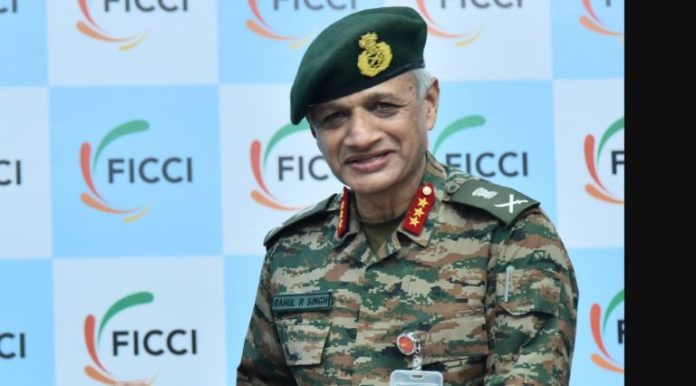——- Lt-Gen Rahul Singh reveals Indian vulnerabilities as Pakistan gains an edge in intelligence combat
——- Calls for urgent air defence upgrades
——- Claims China helped Pakistan with ‘live inputs’ in conflict with India
DM Monitoring
NEW DELHI: In a striking admission, Indian army deputy chief Lieutenant General Rahul Singh has acknowledged that Pakistan holds a strategic military advantage, especially in intelligence gathering and electronic warfare.
Addressing the current regional security environment, Lt Gen Singh expressed deep concern over the increasing military cooperation between Pakistan, China, and Turkiye, which he said has added to India’s defense anxieties.
“Pakistan had accurate knowledge of our troop movements and strategic deployments,” he admitted, further revealing that Indian defense operations had been compromised by intelligence sharing between Pakistan and China.
Lt Gen Singh also pointed out the underperformance of India’s air defense systems, noting they failed to meet expectations during recent exercises and potential engagements.
He highlighted that Pakistan’s use of electronic warfare tactics disrupted Indian military operations, posing a serious challenge to Indian forces on the ground.
This rare acknowledgment from a top Indian military official signals a growing recognition of Pakistan’s evolving defense capabilities and underscores the shifting strategic balance in South Asia.
Also, Singh claimed that Pakistan appeared to be receiving real-time intelligence inputs from China during recent military tensions—an advantage that significantly bolstered Islamabad’s strategic positioning. He stressed the urgent need for India to modernise its air defense systems, which underperformed during the confrontation.
According to Lt Gen Singh, India faced a dual threat, describing Pakistan as the “front face” of the conflict while China provided critical behind-the-scenes support.
“During Director General of Military Operations (DGMO)-level talks, Pakistan specifically mentioned that a key Indian military vector was primed and ready for action,” he said. “It was clear they were receiving live updates—direct intelligence relayed from China.” While Singh stopped short of explaining how Indian intelligence confirmed this information, he admitted to operational shortcomings, acknowledging that India’s air defense infrastructure failed to meet expectations under pressure.
He also voiced concerns about Pakistan’s deepening strategic alignment with China and Turkiye, warning that this growing trilateral cooperation could disrupt the existing balance of power in the region.
The recent statements from its top defense officials are drawing criticism both domestically and abroad. Last month, Indian Air Chief Marshal admitted that India’s defense planning consistently fails to meet timelines—a rare public acknowledgment of strategic inefficiencies. More recently, Indian military leadership has claimed that Pakistan, China, and Türkiye collectively defeated India, a narrative analysts describe as a failed attempt to justify military shortcomings before the Indian public.
In contrast, Pakistani officials and defense experts have rejected such narratives as immature and unprofessional, noting that Pakistan has never complained about India’s use of Israeli or French weaponry.
According to defense analysts, this open criticism of India’s own government and military planning reflects growing internal political instability and frustration within the Indian establishment.
Experts further warn that Pakistan is fully capable of targeting India’s economic and industrial infrastructure in the event of any future military aggression.
Citing Pakistan’s superior preparedness, the Inter-Services Public Relations (ISPR) had earlier stated that during the “Battle of Haq,” Pakistan utilised only 10 to 15 percent of its technical capabilities, leaving a significant reserve of untested potential.




